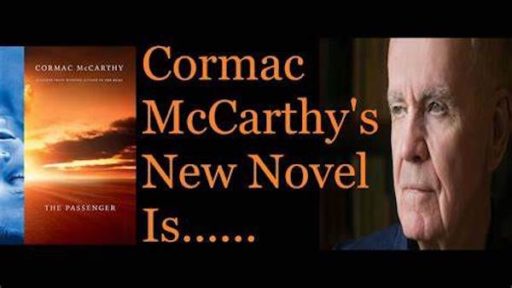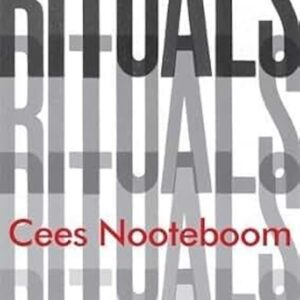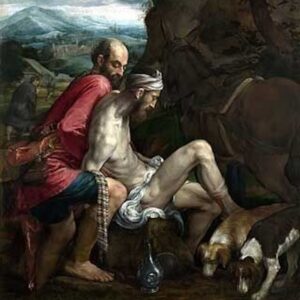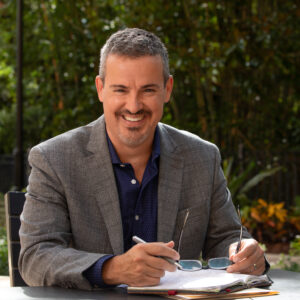Preparatory to discussing Cormac McCarthy’s new fiction, a duology comprising The Passenger and Stella Maris, with Gregory Wolfe via Zoom on January 25th, I’d like to offer a few ways into the books.
The fate of the West
The surname of the main characters, siblings Alicia and Bobby, is Western. Novelists do not name characters carelessly. Bobby and Alicia are the children, born in the late 1940s and early 1950s respectively, of a physicist who worked on the Manhattan Project which built the first atomic bombs. In The Passenger we read:
Western fully understood that he owed his existence to Adolf Hitler. That the forces of history which had ushered his troubled life into the tapestry were those of Auschwitz and Hiroshima, the sister events that sealed forever the fate of the West.
Oswald Spengler, whose book The Decline of the West is now over 100 years old, is mentioned by Alicia in Stella Maris. Several characters refer to a terrible apocalyptic time fast approaching. My favorite is the petty criminal and grandiloquent aesthete John Sheddan, who foretells social decay and worse doom while he’s still alive and later as a ghost speaking to Bobby in Spain.
Alicia has a horrifying intimation of what she calls the Archetron, which isn’t poised against civilization so much as the evil substratum of all existence, a Gnostic fantasy of a demiurge who makes the Shoah and Hiroshima not historical accidents but nightmare emblems of reality itself.
“Platonism”
As if the word is a slur, “platonism” comes up several times. For Alicia and Bobby, Plato seems to stand for the idea of transcendence, or what is called philosophical realism: the position that ideas are real, existing outside of individual human minds—in eternity, or the mind of God, etc. Like all moderns, Alicia and Bobby can’t quite bring themselves to believe in the eternal, the transcendent, the metaphysical, yet they are haunted by the lack.
I found myself wondering how these novels would be different if they had incorporated Eastern thought. I wanted to shout at Alicia and Bobby: Try reading Nagarjuna or Nishida Kitaro if you’re so smart! Partial differential equations are great, but how about some dependent origination? And you know, a little zazen and tai chi wouldn’t kill you…. It seems to be specifically Western thought (whether “platonism” or the radical skepticism that has replaced it for the Western siblings) that is shown up for a dead end; and uniquely Western materiality and carnage—the atom bomb and the Shoah—that is presented as the inevitable reckoning our philosophical failure has brought about.
The near-historical setting
Bobby and Alicia are not far from the 1960s counterculture and the beginning of intellectual postmodernism, which arose very much in response to those “sister events that sealed forever the fate of the West.” The middle twentieth century was also the last time there was a significant influx of Eastern thought into Western culture. Why don’t either of them respond to those cultural trends? The books make no mention of significant historical events around the early 1980s, when Bobby’s main story is set. Maybe it’s simply because McCarthy wanted to be working with the generation that built the bomb and that generation’s children before they grew old?
Judaism
The siblings’ father was Jewish and he’d been married to an Orthodox Jewish woman before meeting their mother. Nothing much is made of that first marriage. The siblings’ mother, though her family is from rural eastern Tennessee going back to the mid-nineteenth century, is also Jewish. This I find improbable, not least because there are Catholic trappings in the grandmother’s house, but I guess it’s possible. But what does it mean?
Judaism is about doing mitzvot, acting in the world. Certain words, rituals, deeds usually spoken or done with others, forming a sense of peoplehood. It is not ultimately (or originally) about anything vague or abstract. But there is no such tangible, interconnected spirituality on offer in the duology. No way of connecting to others and to the world. Instead, the refrain in both books, from both siblings and the characters they encounter, is “Alone in the world.”
For a certain stream of Hasidism, Chabad, there are three mental faculties. The name Chabad comes from chokhma(wisdom), binah (understanding), and daat (knowledge). These are not synonyms, but steps in a process, the totality of which I would call real life, or life really lived, body and soul.
Wisdom is basic familiarity with the concepts and ideas and facts that make up the world; understanding apprehends their mechanism; and knowledge is joining that understanding to your own being so as to govern your emotions and act in the world (back to those mitzvot). Knowledge as unification because… Recall that in the Hebrew Bible a word for knowing and for sex is the same. Knowledge is the joining of the intellectual and bodily worlds, the marriage of mind and matter. Being itself is erotic, nuptial.
And it is such intimate, embodied existence which is denied the characters, especially poor Alicia. Most poignantly, sexual life is denied them: their passion is for each other, a taboo they do not break. They have no children, though Alicia desired them. The pathos of these books comes from a horrific divorce of intelligence and matter, the lack of knowledge in this erotic and salvific sense, an integrated, whole life. Most of what we call knowledge or knowing in the modern West is only knowing about. There is very little that we really know, and our crisis since Kant (mentioned often in the books) is epistemological—we have lost faith that we can know in that organic way.
Music, mathematics
Alicia played the violin. There are beautiful passages in her words describing her love of the music and of the instrument itself. And yet, she no longer plays, she has lost the erotic knowledge of the music in her quest to map (she’s into topology) the sound of the violin.
The extent to which (absolute) music is convertible with mathematics, or with number, is a metaphysical question, and one which seems to underlie at least Alicia’s skepticism of Plato’s legacy and a realist construal of language.
Place
I love the provincial origins of the family in Tennessee. I love Bobby’s harshly ascetic retreat to wintertime Idaho from New Orleans. I’m perplexed by Alicia’s yearning for Romania, land of her Jewish ancestors, as she thinks of it. But this is not the ultimate Jewish place: the ultimate Jewish connection to place is in Eretz Yisrael.
My favorite locale is the coast of Valencia, Spain (very near La Mancha). There Bobby imagines his eventual death, still thinking of his deceased and beloved sister, and calls himself the last pagan. But he is in fact, I think, the very beginning of something new. As he tells an incredulous American acquaintance he runs into:
I live in a windmill. I light candles for the dead and I’m trying to learn how to pray. What do you pray for? I don’t pray for anything, I just pray. I thought you were an atheist. No. I don’t have any religion.
That is the faith of our future.
Jonathan Geltner lives in Ann Arbor MI with his wife and two sons. His translation of Paul Claudel’s Five Great Odes is available from Angelico Press and a novel, Absolute Music, is available from Slant. If you enjoy his posts at Close Reading, check out his new Substack, Romance and Apocalypse, for more frequent and in-depth essays on the places where literature and other arts meet religious ideas and experience.





